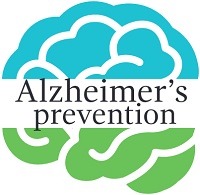(I’m sure you are aware of all the information on the benefits of vitamin E in the prevention of cardiovascular diseases (disease of the heart and blood vessels). You may be taking vitamin E supplements for that reason. But before you go out and buy more, read the article below from Making Healthy Choices Newsletter, May 2007.
“Early studies in nutrition suggested that vitamin E may be linked to lower mortality (death) levels for heart disease and cancer. A clinical trialgiving large doses of vitamin E (alpha-tocopherol) to heart patients did not decrease mortality. In fact, a recent review of 19 clinical trials giving vitamin E (alpha-tocopherol) to patients showed a small but significant increase in mortality. Based on this information, doctors suggested to their patients that taking large doses of vitamin E is not a good idea. A new study in Finland gives additional light on this controversial topic. Researchers studied 29,092 male smokers and looked at their dietary intake of vitamin E (not supplement intake). To be more exact, they measured serum levels of vitamin E (alpha-tocopherol). They found that the higher the men’s blood levels of vitamin E (indicating that they were eating more vitamin E rich foods) the lower their risk of dying during the 19 years of follow-up. Comparing the top 20% of people with the highest intake of vitamin E to the 20% of people with the lowest intake:
· Overall mortality (deaths) decreased by 18%
· Cancer decreased by 21%
· Prostate cancer decreased by 32%
· Cardiovascular disease decreased by 19%
· Coronary heart disease decreased by 16%
· Stroke decreased by 35%
· Respiratory disease decreased by 42%
· And all other causes of death decreased by 30%
How do you explain that vitamin E taken in large doses increases mortality rates but when eaten in the foods, a higher intake decreases mortality? Other research has shown that taking large doses (i.e., supplements) of alpha-tocopherol has been shown to lower your absorption of gamma-tocopherol, another important source of vitamin E that has high antioxidant capacity. By eating more foods high in vitamin E, you get a mixture of both alpha- and gamma-tocopherol. This proper balance found in food lowers risk of mortality. The authors concluded that higher concentrations of vitamin E in the blood were associated with lower mortality rates even after adjusting for age, smoking, cholesterol levels, history of cardiovascular disease, and HDL cholesterol levels. They further recommended that supplements are not effective but that efforts to increase dietary vitamin E may be warranted; increasing foods rich in vitamin E such as nuts (e.g., almonds and hazelnuts), seeds (especially sunflower seeds), whole grains, vegetable oils, and dark green leafy vegetables.
(I’m sure you are aware of all the information on the benefits of vitamin E in the prevention of cardiovascular diseases (disease of the heart and blood vessels). You may be taking vitamin E supplements for that reason. But before you go out and buy more, read the article below from
Making Healthy Choices Newsletter, May 2007.



